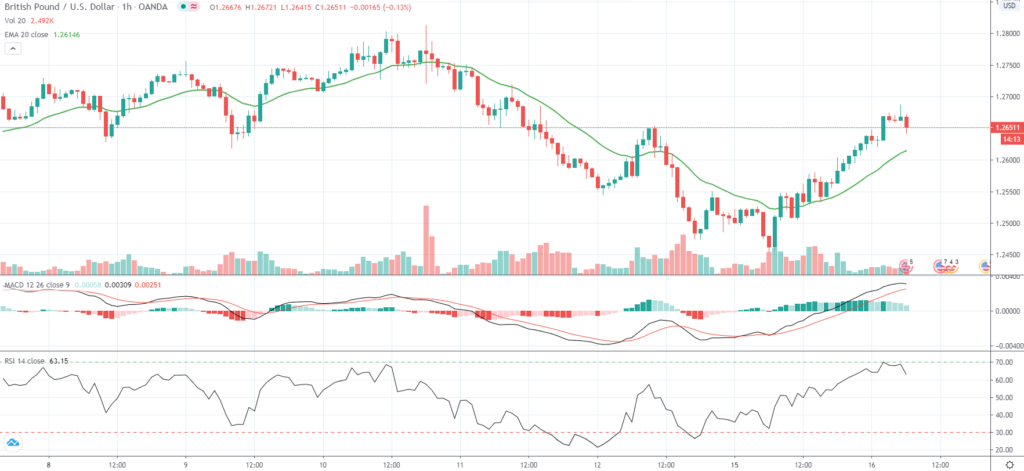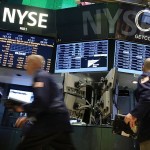GBP/USD extended gains from the previous trading day and maintained ground near intraday highs in early European trade on Tuesday on weaker US Dollar.
Risk sentiment received a boost, pressuring traditional haven currencies such as the greenback, after the Federal Reserve said on Monday it would begin buying a diversified range of investment grade US corporate bonds from June 16th in an attempt to ensure liquidity in credit market as well as access to cash for corporate entities.
The US central bank said it would begin bond purchases in the secondary market from June 16th, while it also plans to buy bonds directly from issuers “in the near future.” The primary and the secondary bond purchasing programme will be worth $750 billion.
However, Sterling pared a portion of earlier gains after a report by the Office for National Statistics showed the number of people in the UK filing for unemployment benefits had increased by 528,900 to 2.801 million in May, or at a sharper rate than anticipated. In April, the Claimant Count rose by 856,500.
At the same time, the rate of unemployment in the country remained stable at 3.9% during the three months to April, as the number of unemployed persons dropped by 8,000 to 1.34 million, while the number of people in employment went up by 6,000 to a record high of 33.99 million. Analysts on average had expected an increase in the unemployment rate to 4.7%.
Average weekly earnings including bonuses rose at a slower-than-expected rate, by 1% year-on-year, to GBP 529 during the three months to April, following a 2.4% surge during the three months to March.
Bank of England is expected to increase the scale of bond purchases by at least GBP 100 billion to GBP 745 billion at its upcoming policy meeting on Thursday.
“The question I have is whether a greater level of QE acts as a sterling negative or positive,” Chris Weston, head of research at Pepperstone, said.
“In theory, it’s negative. But FX markets have generally rewarded currencies where the central bank or government have gone harder to aid the economy,” he added.
As of 6:55 GMT on Tuesday GBP/USD was gaining 0.30% to trade at 1.2645, after touching an intraday high of 1.2688 during late Asian session, or a level not seen since June 11th (1.2755).
Today’s focus will be on the monthly report on US retail sales at 12:30 GMT. Analysts on average expect an 8.0% monthly growth in sales in May, following a 16.4% slump in April. The latter has been the steepest monthly drop on record due to the coronavirus pandemic-related lockdown measures.
Additionally, core retail sales, which exclude large ticket prices and historical seasonality of automobile sales, are expected to increase 5.4% in May, following a record monthly drop of 17.2% in April.
A separate report by the Board of Governors of the Federal Reserve at 13:15 GMT may show industrial production in the country expanded at a monthly rate of 2.9% in May, according to market expectations, after shrinking at a record rate of 11.2% in April. US manufacturing output is expected to decrease 4.6% in May from a month ago, following a 13.7% slump in April.
Market players will be also paying attention to Federal Reserve Chair Jerome Powell’s testimony on the bank’s semi-annual monetary policy report in front of the Senate Banking Committee at 14:00 GMT.
Bond Yield Spread
The spread between 2-year US and 2-year UK bond yields, which reflects the flow of funds in a short term, equaled 23.7 basis points (0.237%) as of 6:15 GMT on Tuesday, up from 22.5 basis points on June 15th.
Daily Pivot Levels (traditional method of calculation)
Central Pivot – 1.2556
R1 – 1.2657
R2 – 1.2708
R3 – 1.2809
R4 – 1.2911
S1 – 1.2505
S2 – 1.2404
S3 – 1.2353
S4 – 1.2302






